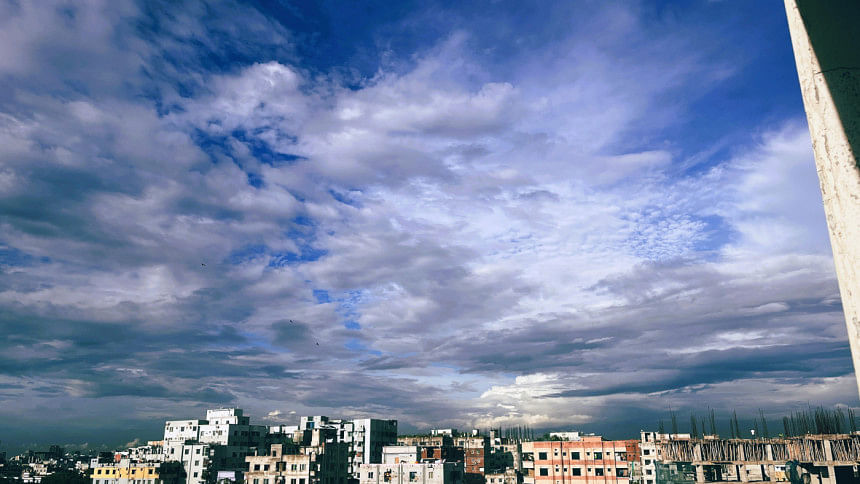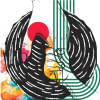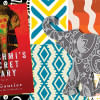Dhaka in slow motion

The city still wants to breathe.
The morning light—thin and sifted through Dhaka's smog like old turmeric—barely reached the cracked tiles of Asif's fifth-floor apartment in Uttara, sector 3. Outside, Dhaka North unfurled like a giant too heavy to stand, its breath short, its veins—roads, alleys, highways—clogged with impatience. A familiar knot twisted in his chest. Not panic. Something worse. A tired, bone-deep dread.
"Jam," he muttered. One word. Heavy as a curse. Soft as surrender. Not just traffic but a verdict. A national condition.
It wasn't the number of vehicles—the endless metallic tide of battered buses, rickshaws, and swerving motorbikes—it was the futility. Every honk is a scream into the void. Every movement forward, a pyrrhic victory. The air itself felt solid, as if you could chew the soot. Dust, diesel, frustration—this was Dhaka's aftertaste.
But Asif saw more than traffic.
With an M.S. in development studies from North South University, he saw the slow violence others ignored. Carbon monoxide laced the air. Particulate matter buried itself in children's lungs. The rivers—Buriganga, Turag—once lifelines of Bengal, now flowed black and thick, dragging chemical sludge and broken memory.
His grandmother used to say, "Ei nodi'r jol diye shuru hoito shob kichu. (Everything began with the water of these rivers)." Now, they were dying in plain sight.
"We're drowning in our waste," he would tell Maliha, voice rough with helplessness. "Everything's ending. There's not even air left to breathe."
She would meet his gaze, her fire-lit eyes unflinching—not in agreement, but in resistance.
His daily commute to Shahbagh was a ritual of endurance. The local bus was a sweltering tin box—its air conditioning, a forgotten promise. Inside, bodies collided in silence. The conductor shouted half-formed words, and coins clinked like clockwork. Elbows, bags, someone's sweat-slick arm pressed against his.
Outside, rickshaws weaved through impossible spaces like startled insects.
"Let's go!" came the cries—urgent, insistent, exhausted.
The heat clung like a second skin. The drains overflowed with yesterday's refuse. Spoiled fruit, open meat, and sweat from the kacha bazaar fermented into a smell only Dhaka knew—half hunger, half decay.
He often recalled a line from a development theorist: "A city's infrastructure reflects its soul."
And Dhaka's soul? It was gridlocked. Honking, coughing, choking on its breath.
His salvation came in the form of steel and silence: the metro.
At Uttara North station, the air changed—filtered, still. Order emerged from chaos. People queued. Screens blinked soft certainties: "Next Station: Agargaon."
Not a plea. Not a dream. A fact. And facts, in Dhaka, were rare and beautiful things.
Inside the train, the noise dissolved. There was only the low hum of motion and the gentle sway of hope. Asif leaned against the glass, watching the city blur past.
"Eita toh amader-o dorkar chhilo," he whispered. We needed this too.
"This," he thought, "is what we could be—if only the will existed. If only the will matches the need."
At Shahbagh, the chaos returned, but so did life. The DU campus buzzed with possibility. Ideas. Slogans. Arguments. Dreams. And near the TSC steps, always waiting, stood Maliha.
She was what Dhaka could be—bright, deliberate, unyielding. A BBA student at IBA with a strategist's mind and a poet's conviction. Together, they weren't just partners. They were co-conspirators in something bigger than themselves.
They were called "posh" by cousins and classmates—more as a jest than an insult. But their choices were intentional. Clean phuchka over gutter oil. Artisan coffee over a grimy cha-dhaba. Not to show off, but to make space for quiet rebellion. A kind of dignity.
Their evenings were sacred. Wandering Batighar at Bishwo Shahitto Kendro, breathing in the smell of ink and ideas. Fingers tracing spines like sacred objects.
"This one's on circular economies," Asif would say, holding up a book.
"It flips everything we've been taught."
Maliha would smile, pragmatic as ever.
"Only if someone in Gabtoli can understand it between power cuts. Sustainability needs storytelling, Asif. Make it feel like something people want to belong to."
Later, they'd walk through Ramna Park—under banyan trees older than the republic. Children chased kites. Aunties power-walked in bright cotton saris. Old men played chess on stone benches. They'd sing Rabindranath, Lalon, and Nazrul, slightly off-key, completely sincere.
And always, always, they talked of change.
"It's not enough to complain," Maliha would say, voice steady.
"We need to become the bhumika. The prototype. Let people see what's possible."
Asif would nod, heat in his chest.
"If we don't act, who will? Silence is its kind of corruption." They weren't dreaming abstract dreams. They had a plan: rooftop composting in their apartment complex; water conservation campaigns run by student collectives; a mobile app that mapped air quality and empowered citizen action; and pocket parks in abandoned lots–green lungs for a choking city.
The two of them weren't just in love. They were designing a different Dhaka—one recycled idea, one poetic defiance at a time. Their love was a form of activism. A way of insisting that even in the loudest, dirtiest city, grace was possible. That hope wasn't naïve—it was necessary.
And in the quiet, shared spaces between them—in the train's stillness, in the scent of new books, in the last light of day sinking over Ramna—they believed something radical: The city still wants to breathe. And they would be there when it finally does. To guide that first clean breath—with steady hands, fearless hearts, and one small, deliberate revolution at a time.
Md Mujib Ullah reads, thinks, and writes. His work has appeared in Artful Dodge, Text, and elsewhere.

 For all latest news, follow The Daily Star's Google News channel.
For all latest news, follow The Daily Star's Google News channel. 










Comments